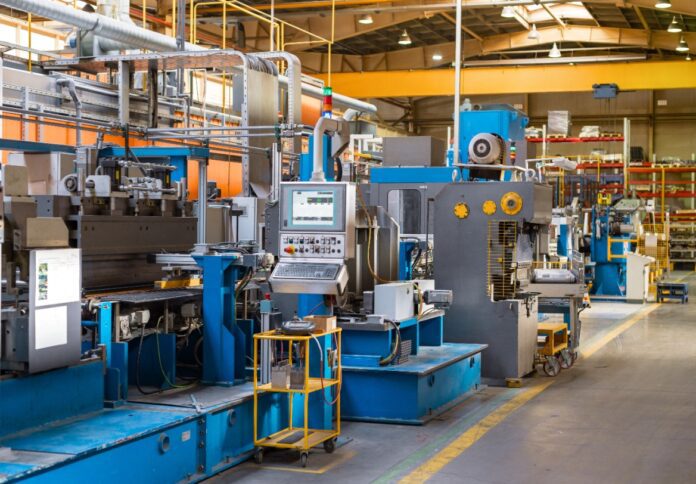
The JP Morgan Global Manufacturing PMI has reported a reading of 48.8 for September, indicating a deterioration in overall operating conditions for the third successive month.
This latest figure marks the fastest rate of decline in nearly a year, with four of the five PMI components reflecting contraction in September.
Bennett Parrish, global economist at JP Morgan, commented, “A fourth straight decline in the global manufacturing output PMI points to a weakening in global industry.”
“The 0.6pt move down in September lowered the output index to a nine-month low of 49.4, marking its first reading below the 50-mark this year.”
The PMI’s downturn was driven by falling output, new orders, employment, and stocks of purchases. Only the suppliers’ delivery times index provided a positive contribution to the headline PMI.
Manufacturing production decreased for the first time this year as companies scaled back operations in response to reduced new business intakes.
The report indicates that new orders have declined for three consecutive months, with the rate of contraction steepening to the highest level since December 2022.
Parrish noted, “Underlying details were also weak: the new orders, employment, and future output PMIs all saw sizable September declines.”
International trade remained weak, as the contraction in new export orders reached an 11-month high.
Data broken down by sector revealed a widespread malaise across global industries, with both intermediate and investment goods sectors experiencing production contractions.
While the consumer goods sector continued to expand, its growth rate remained tepid at best.
Among major economies, the eurozone exhibited the steepest fall in production, primarily driven by a downturn in Germany.
The United States saw a deeper contraction, and Japan recorded a marginal decline.
In contrast, production in mainland China showed minimal growth, stagnating for a third consecutive month, while reduced rates of expansion were observed in the rest of Asia.
However, India, Brazil, Spain, and the UK emerged as some of the fastest-growing larger nations included in the survey.
September’s data also highlighted manufacturers’ ongoing efforts to minimize costs and address under-utilised capacity.
Backlogs of work declined for the twenty-seventh consecutive month, resulting in further cuts to employee headcounts.
Staffing levels fell for the second month in a row, hitting their lowest point since December 2023.
Additionally, purchasing activity decreased, leading to depleted stocks of inputs, while holdings of finished goods inventory remained largely unchanged.
Confidence among manufacturers took a hit as business optimism fell to a 22-month low, affecting all three sub-industries surveyed.
Parrish expressed concern, stating, “At the national level, a depressed Euro area output PMI points to a very weak industrial sector while China looks to be stagnating. Even the US output PMI, which stood out with a modest step up in its earlier flash estimate, saw this improvement wiped away in today’s final release.”
On a more positive note, price inflationary pressures eased in September, with rates of increase in both input costs and selling prices being the mildest since March.
However, suppliers’ delivery times lengthened for the fourth consecutive month.

















